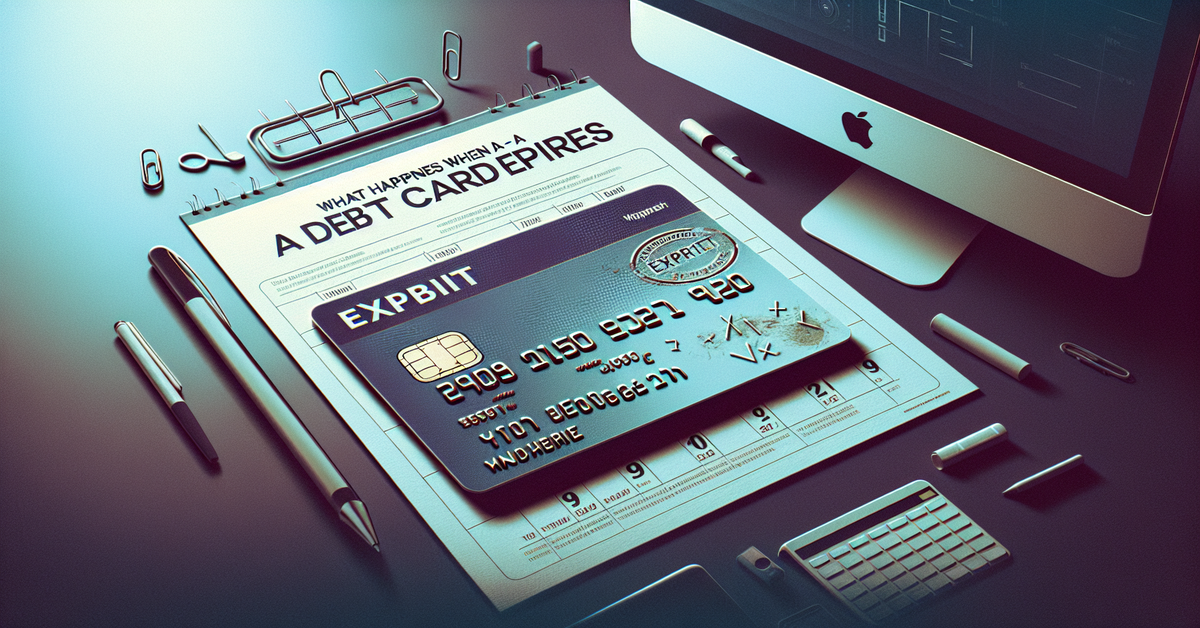When your debit card expires, you might not realize the immediate impact it can have on your daily transactions, from grocery shopping to online bill payments. Banks usually send out reminders and a new card, but what happens if you miss those notifications? It's crucial to understand how to manage automatic payments and avoid unexpected fees during this shift. You may even want to reflect on what backup options you have in place. The implications can extend beyond just a simple inconvenience, making it important to stay informed about the entire process.
Impact on Daily Transactions
When your debit card expires, it can disrupt your daily transactions, leaving you unable to access funds or make purchases until you replace it. This inconvenience can affect everything from grocery shopping to paying bills online. You might find yourself in a bind at the checkout, unable to complete your purchase or access cash from an ATM. It's vital to keep track of your card's expiration date and plan ahead. Consider setting reminders for yourself a month before it expires. Having a backup payment method, like cash or another card, can also provide peace of mind during this change. Prioritize replacing your card promptly to avoid any disruptions in your financial activities and maintain your safety and security.
Notification From Your Bank
Most banks notify you in advance before your debit card expires, ensuring you're aware of the upcoming change and can take necessary action. Typically, you'll receive a notification via mail, email, or through your banking app. This message usually includes the expiration date and any important details regarding your account. It's essential to pay attention to these notifications, as they help you avoid any disruptions in accessing your funds. If you don't receive a notification, don't hesitate to contact your bank directly to confirm your card's status. Staying informed allows you to plan ahead, ensuring you can continue your transactions smoothly and securely without any unexpected interruptions.
Process for Receiving a New Card
To receive your new debit card, your bank typically processes it automatically and sends it to your registered mailing address shortly before your current card expires. You won't need to take any action, but it's wise to verify your address is up-to-date. If you haven't received your new card a few days before the expiration date, contact your bank for assistance.
Once it arrives, check it for any damage and verify that your name and account number are correct. If everything looks good, sign the back of the card to enhance security. Remember to destroy your old card securely to prevent unauthorized use. This simple process helps maintain your financial safety and guarantees you can continue making transactions without interruption.
Updating Automatic Payments
Updating your automatic payments is essential after your debit card expires to guarantee uninterrupted service. First, review all your accounts that rely on your debit card for payment. This includes utilities, subscriptions, and any other recurring charges. Log into each service provider's website or app, and navigate to the payment settings. Here, you'll need to enter your new debit card information, including the card number, expiration date, and CVV code. Make certain to save the changes and check for any confirmation emails to verify everything's updated correctly. Keeping your payment information current not only helps avoid missed payments but also protects your accounts from potential security issues. Regularly monitor your accounts to confirm all transactions are processed smoothly.
Potential Fees and Charges
When your debit card expires, you might encounter potential fees and charges if you don't update your payment information promptly. Many services, like subscriptions or utilities, may attempt to charge your old card. If they can't process the payment, you could face late fees or service interruptions. Additionally, some banks impose over-limit fees if you don't maintain a sufficient balance to cover these unexpected charges. It's essential to keep an eye on your account statements during this change to avoid surprises. Always update your payment details as soon as you receive your new card. Staying proactive can save you from unnecessary costs and guarantee your financial safety while managing your subscriptions and obligations smoothly.

